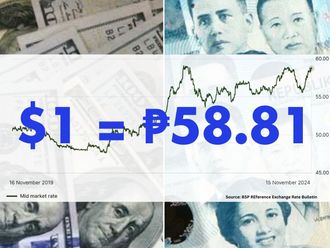Singapore: Indonesia may provide tax incentives for sukuk issues and Sharia bank deposits to better compete with Malaysia, the world's top sukuk market, the central bank said yesterday.
One tax incentive being considered would help boost bank capital and another could provide a tax holiday for sukuk issues, Mulya E. Siregar, an Islamic banking director at Bank Indonesia, said.
Indonesia has already removed double taxation on Islamic finance transactions to give the industry a level playing field with conventional banking, but Siregar said more was needed.
"To support Islamic banking and finance, it's not enough just to have tax neutrality. We need also tax incentives like in Malaysia," he told Reuters on the sidelines of an Islamic banking conference in Singapore.
"For investment to come into Indonesia, it is possible to give a kind of holiday tax."
Islamic bank assets in Indonesia are just a fraction of total bank assets, while in Malaysia they are close to a fifth of the total.
Indonesia's Islamic bank assets were 66 trillion rupiah (Dh26.5 billion) as of December 2009, compared with 2,534 trillion rupiah for the banking industry as a whole, central bank figures show.
In Malaysia, Islamic banking assets totalled about $95 billion, or 19.6 per cent of the total, as of December 2009, the central bank has estimated.
Still, with the world's biggest Muslim population, Islamic bankers say Indonesia is set for explosive growth. But first, authorities need to lay the right legal and regulatory framework.
Malaysia is the world's top sukuk market. It accounted for about 40 per cent of total global issuance last year of $19.1 billion. Industry incentives include a 20 per cent stamp duty exemption on Islamic financing instruments until 2015.
Siregar said Indonesia's finance ministry and central bank are studying tax incentives that could boost growth of Islamic finance. The study is expected to be finished by the end of 2010.
Exemption on earnings
One idea is to effectively exempt banks from paying tax on earnings from returns on deposits.
Instead, the amount they would have paid would be parked with the bank as a form of government holding to help boost the bank's capital.
Siregar said it was crucial to attract foreign funds into Indonesia.
"Right now the investor from many countries, especially the Middle East, actually want to come to Indonesia because there are many projects in Indonesia and there are many opportunities," he said.
"But if you compare to Malaysia, which provides tax incentives, how come they will come to Indonesia? So what is important is that funds are coming to Indonesia."












